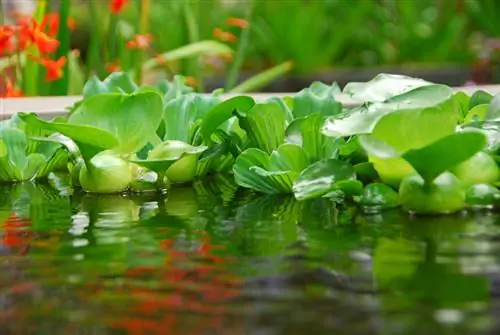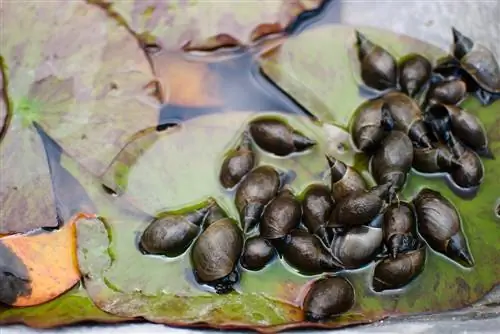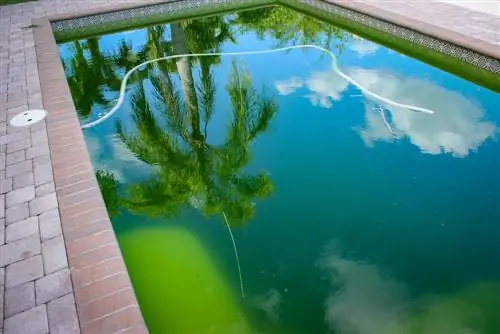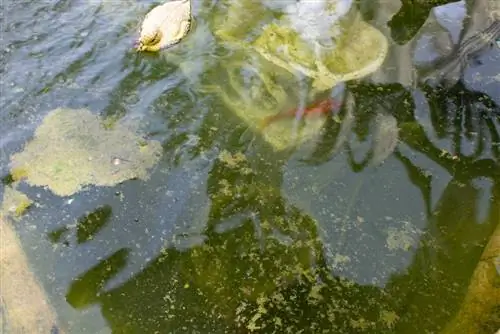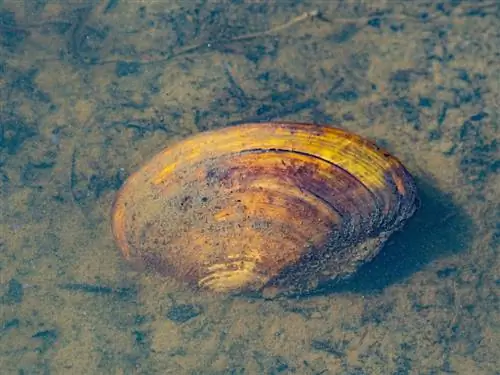- Author admin leonars@hobbygardeners.com.
- Public 2023-12-16 16:46.
- Last modified 2025-01-23 11:20.
Which garden pond owner doesn't know this: If you neglected the pond and were on vacation for a few weeks, for example, algae formed in no time. You can get rid of them again with a filter system. But it can also be more natural
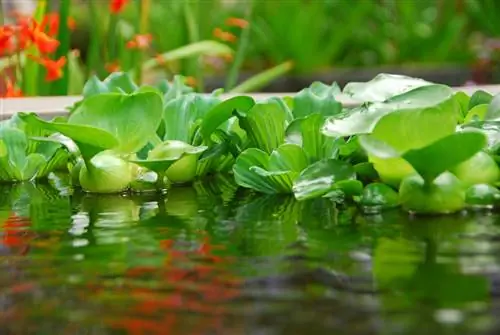
How does the shell flower work against algae in the pond?
The mussel flower effectively helps against algae in the garden pond by absorbing nutrients such as nitrogen, phosphates, fish food, nitrates and suspended solids. This reduces algae growth and naturally purifies the water.
The natural filter system in the pond
In fact, this aquatic plant is extremely useful when it comes to limiting or preventing the formation of algae in the garden pond or aquarium. But how does the shell flower do it?
Absorb nutrients that algae need to grow
The shell flower absorbs numerous components/nutrients in the water. It does this with the help of its long thread roots, which float in the water and like to give fish a place to hide. Some of the things this plant filters include:
- Nitrogen
- Phosphates
- Fish food
- Nitrates
- Suspended solids
Lots of nutrients mean fast growth
Through the work of the roots, nitrogen and phosphates, among other things, are absorbed and removed from the water. Algae need these nutrients in order to develop and grow. The shell flower can therefore be viewed as a natural filter system. The more nutrients the water contains, the better and faster it grows.
Other benefits of the shell flower
It's not just its ability to purify the water and thus act against algae that makes the mussel flower an effective aquatic plant. It also provides shade for fish and partial shade-loving aquatic plants. It offers hiding places and looks beautiful.
What does the shell flower need to grow?
Shell flowers need a sunny to partially shaded location to thrive. If the water is warm enough (these plants are not frost-resistant and need to be overwintered), they just need to be thinned out regularly.
If you don't thin them out regularly, you risk that the shell flowers will soon take over the entire water surface and rob other aquatic plants of all the light. Fish will also soon feel harassed by too many shell flowers.
Tip
Attention: Do not put too many shell flowers in the garden pond! Many plants clean the water well. But they also demineralize it.

